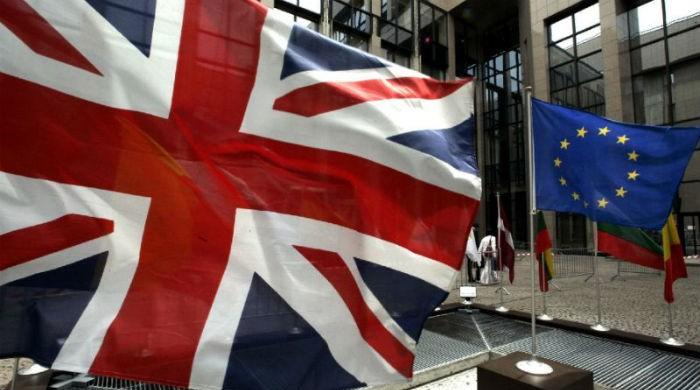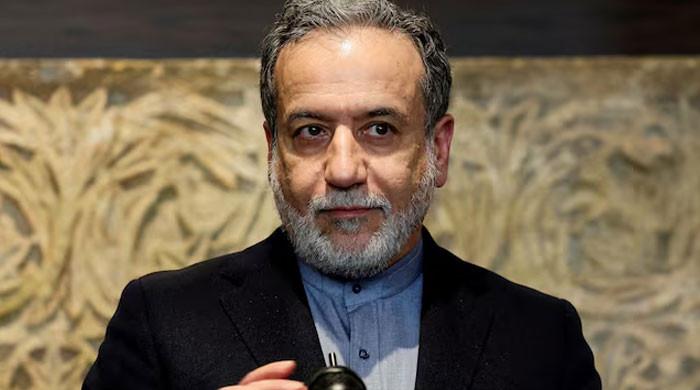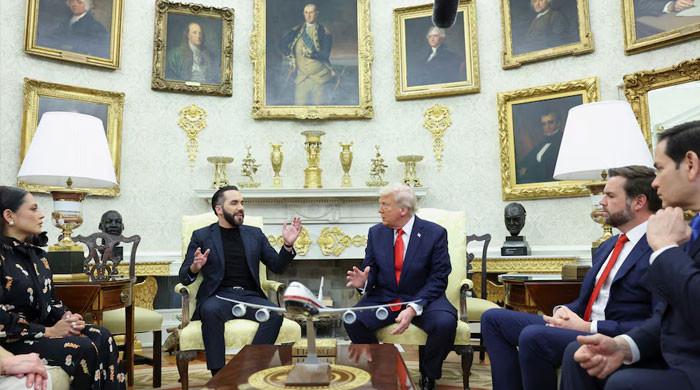EU announces tough guidelines for Brexit negotiations
The document rejects the Britain’s demand to reach an agreement on future trade relations alongside the withdrawal agreement
April 03, 2017

BRUSSELS: The European Council announced today the guidelines containing principles and positions on “the two-phased withdrawal” of Britain from the European Union. Despite wishing to have Britain as a “close partner” in future, it does not rule out the prospects of “Dirty Brexit” as the “Union will prepare itself to be able to handle the situation also if the negotiations were to fail.”
The document issued jointly by EC president Donald Tusk and Maltese Prime Minister Joseph Muscat declares that EU shall act as one party and UK shall not deal with member states on a bilateral level. The principle of the freedom of goods, capital, services and people shall remain indivisible and any”non-member of the union cannot have the same rights and enjoy the same benefits as a member.” The integrity of the single market, according to the guidelines, does not allow sector-to-sector deals “in accordance with the principle that nothing is agreed until everything is agreed, individual items cannot be settled separately,” the document clarifies.
The document also rejects the Britain’s demand to reach an agreement on future trade relations alongside the withdrawal agreement. It declares that only frameworks and transitional agreements shall be arranged in the second phase, “as soon as sufficient progress has been made in the first phase towards reaching a satisfactory arrangements for an orderly withdrawal” after “once the UK has become a thrid country.”
The document sets the first priority for the rights and benefits of the EU citizens (estimated 3 million) and UK citizens (around 1 million) living, studying or working in Britain and EU. The second priority deals with the businesses based in UK and vice versa. “A single financial settlement should ensure that the Union and UK both respect obligations undertaken before the date of withdrawal. The settlement should cover all legal and budgetary commitments as well as liabilities, including contingent liabilities,” says the document.
The EU wants to ensure that the European Court of Justice shall hold jurisdiction in the matters under preview before withdrawal. Similarly, it wants matters under EU commission jurisdictions before Brexit be dealt within same parameters. The EU wants disputes settlement mechanisms regarding applications and interpretations of withdrawal agreement, “bearing in mind the Union's interest to...protect its autonomy and its legal order, including the role of Court of Justice of the European Union.”
EU shall respect UK's interests regarding its Good Friday Agreement with Republic of Ireland especially in avoiding hard borders with Northern Ireland. Similarly, the Union shall not jeopardise UK's Sovereign Base Areas in Cyprus. However, it will also not allow any implication on territory of Gibraltar without the consent of the Kingdom of Spain.
The letter of the invocation of article 50 of the Treaty of European Union, presented to Donald Tusk on March 29 contained the possibility of the “weakening” of security cooperation in case of the failure of Brexit negotiations. The EC guidelines, however, declare that EU “stands ready to consider establishing a partnership in other areas, in particular the fight against terrorism and international crime as well as security and defence.”












